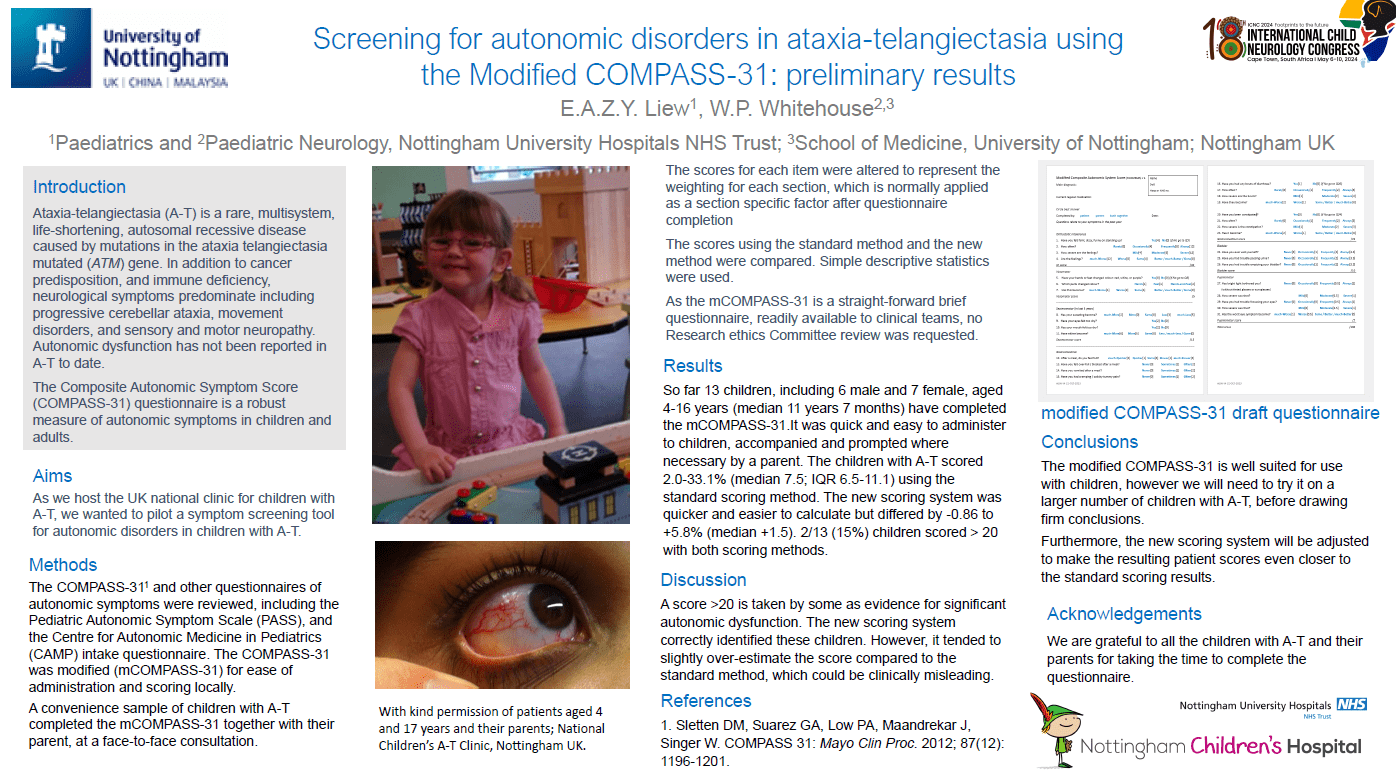Screening For Autonomic Disorders In Ataxia-telangiectasia Using The Modified COMPASS-31: Preliminary Results
Objective Ataxia-telangiectasia (A-T) is a rare, multisystem, life-shortening, autosomal recessive disease caused by mutations in the ataxia telangiectasia mutated (ATM) gene. In addition to cancer predisposition, and immune deficiency, neurological symptoms predominate including progressive cerebellar ataxia, movement disorders, and sensory and motor neuropathy. Autonomic dysfunction has not been reported to date in A-T. The Composite Autonomic Symptom Score (COMPASS-31) questionnaire is a robust measure of autonomic symptoms in children and adults. Our aim was to pilot it in children with A-T, as we host the national clinic for children with A-T. Methods The COMPASS-31 was modified (mCOMPASS-31) for ease of administration and scoring locally. A convenience sample of children with A-T completed the mCOMPASS-31 together with their parent, at a face-to-face consultation. The scores using the normal method and the new method were compared. Simple descriptive statistics were used. Results So far 13 children (7 female) aged 4-16 years (median 11.6 years) have completed the mCOMPASS-31. It was quick and easy to administer. Children with A-T scored 2.0-33.1% (median 7.5%; IQR 6.5-11.1). The new scoring system was quicker and easier to calculate but differed by -0.86 to +5.8% (median +1.5%) from the standard method. 2/13 (15%) children scored > 20%, indicating a mild autonomic symptom load. Conclusion The mCOMPASS-31 is well suited for use with children, however a larger cohort with A-T is required, before drawing firm conclusions. Furthermore, the new scoring system will be adjusted to make the resulting patient scores even closer to the standard scoring results.
Elizabeth Liew
Nottingham University Hospitals NHS Trust
United Kingdom
William Whitehouse
University of Nottingham
United Kingdom

William Whitehouse
University of Nottingham
United Kingdom